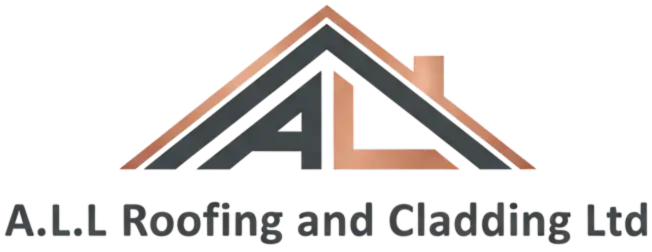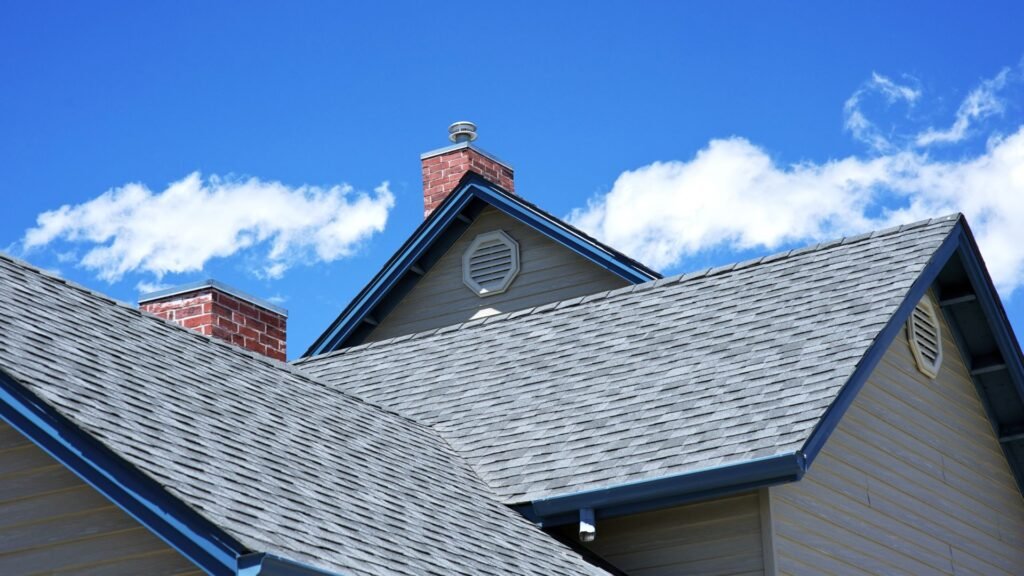Welcome to your go-to guide for understanding roofing cost per square meter in NZ. Whether you’re building a new home, replacing an old roof, or just budgeting for future renovations, knowing what you’ll pay, and why, can save you from unexpected costs. In New Zealand, roofing prices can range anywhere from $90 to $350 per square meter, depending on the material, roof design, and where you live. This post breaks it all down clearly, so you’ll know exactly what to expect, what affects pricing, and how to make the smartest choice for your home and budget.
The average roofing cost per square meter in New Zealand ranges from $90 to $350, depending on the material, roof size, and labour. Common options include long run metal ($90–$180/m²), concrete tiles ($120–$160/m²), and slate ($200–$350/m²). Additional costs like scaffolding, removal, and insulation may apply.
Table of Contents
How Roofing Costs Are Calculated
Understanding how roofing costs are calculated can help you plan your budget more accurately and avoid unwanted surprises. Roofing prices in New Zealand are usually quoted per square meter, but that figure includes much more than just the roofing material. Several key factors influence the total cost of a roofing project, and each one can vary depending on your home, location, and the contractor you hire.
Materials
The type of roofing material you choose has the biggest impact on cost. Options like longrun metal, concrete tiles, and asphalt shingles all fall into different price ranges. For example, longrun metal may cost around $90 to $180 per square meter, while premium materials like slate can go as high as $350 per square meter. Your choice affects not only the upfront cost but also the lifespan and maintenance of your roof.
Labour
Labour is another major factor. Roofing contractors in New Zealand typically charge hourly or include labour in the per square meter rate. Labour costs can range from $50 to $90 per hour, depending on your region and the job’s complexity. Roofers also consider whether the job involves new installation or re-roofing, which often takes more time due to demolition and disposal work.
Roof Design (Pitch, Size, Height)
A simple, flat roof will cost less than a steep, multi-level design. Roofs with a steep pitch require more safety equipment and take longer to work on, which increases labour costs. The overall size of the roof also matters, a larger surface area means more materials and longer installation time. Height plays a role too; higher or multi-story buildings often require scaffolding or other safety measures, adding to the total price.
Site Accessibility
Access to your property can affect how easy it is for workers to deliver materials and install your roof. If your home is on a steep hill, in a tight urban area, or has limited driveway access, the job may take longer and cost more. In some cases, additional equipment like cranes or platforms may be required, which will increase expenses.
Extras (Removal Of Old Roof, Insulation, Waterproofing)
If you’re re-roofing, the removal and disposal of the old roofing materials add to the cost, usually around $20 to $50 per square meter. Insulation and underlay may also need to be replaced or upgraded during the project. Waterproofing layers, ridge flashing, and guttering are other elements that are often not included in basic quotes but are necessary for a complete roofing job.
What “Per Square Meter” Really Means In Roofing
When roofers quote a price per square meter, they’re not just talking about the roofing material itself. That rate typically includes:
- The chosen roofing material
- Labour costs
- Fixings and fasteners
- Basic underlay or membrane
But it doesn’t always include removal of existing roofing, scaffolding, gutter work, or other structural upgrades. That’s why it’s important to ask what’s included in the quote and what’s considered an extra. A clear, itemized quote will help you compare pricing and understand what you’re actually paying for.
By knowing how roofing costs are calculated, you’ll be better prepared to ask the right questions, compare estimates, and choose the best roofing solution for your budget and needs.
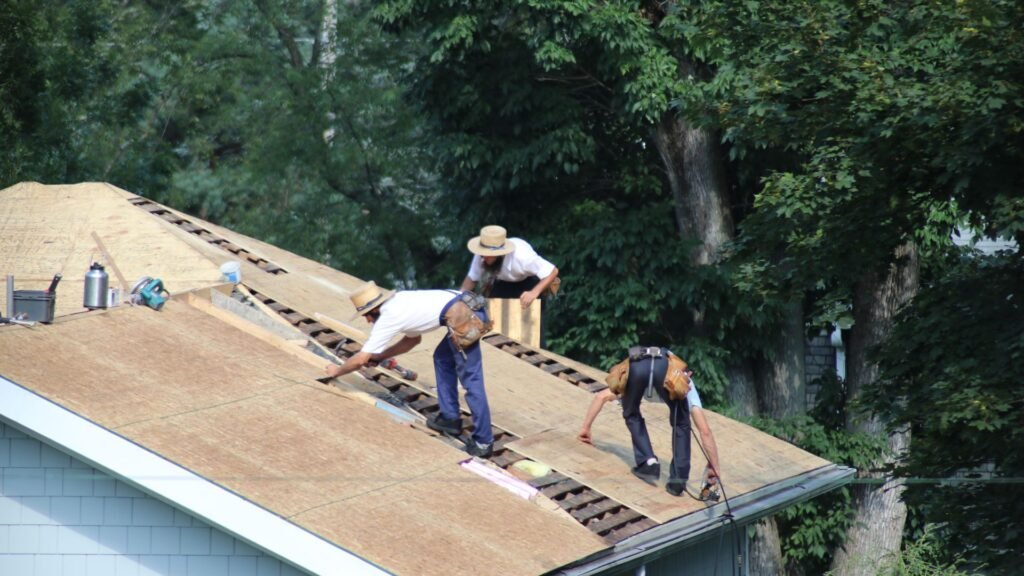
Average Roofing Cost Per Square Meter In NZ (By Material Type)
When budgeting for a roofing project in New Zealand, understanding the cost differences between materials is key. Roofing prices vary not just by square meter rates but also by long-term durability, maintenance requirements, and the type of home being built or renovated. Below is a breakdown of common roofing materials used in NZ, with their estimated cost ranges per square meter and detailed comparisons to help you make an informed decision.
| Roofing Material | Estimated Cost per m² (NZD) |
| Longrun metal | $90–$180 |
| Asphalt shingles | $100–$140 |
| Concrete tiles | $120–$160 |
| Clay tiles | $150–$200 |
| Slate | $200–$350 |
| Membrane roofing | $90–$130 |
Longrun Metal Roofing
- Pros: Lightweight, weather-resistant, and widely available across New Zealand. Easy to install and suits most house styles.
- Cons: Can be noisy in heavy rain unless insulation is added. May dent under impact.
- Common Use Cases: Ideal for modern homes, rural properties, and commercial buildings.
- Lifespan: 30 to 50 years, depending on the coating and maintenance.
- Maintenance Needs: Low. Occasional inspections for rust or damage are recommended, especially in coastal areas.
Asphalt Shingles
- Pros: Affordable, quick to install, and comes in various colors and styles. Suitable for DIY projects in some cases.
- Cons: Less durable in high-wind areas. Can fade and deteriorate faster than metal or tiles.
- Common Use Cases: Popular in suburban homes and low-pitch roof designs.
- Lifespan: 15 to 30 years.
- Maintenance Needs: Moderate. Inspect regularly for cracked or missing shingles. Clean debris to prevent water pooling.
Concrete Tiles
- Pros: Strong, fire-resistant, and insulates well against both heat and cold. Adds a classic look to older homes.
- Cons: Heavy and may require additional roof support. Installation can be time-consuming.
- Common Use Cases: Best for traditional homes, villas, and Mediterranean-style properties.
- Lifespan: 40 to 70 years with proper maintenance.
- Maintenance Needs: Medium. Tiles can crack over time and may need occasional replacement. Lichen and moss removal is also important.
Clay Tiles
- Pros: Excellent durability and thermal performance. Adds character and long-term value to a property.
- Cons: Expensive and heavy. Fragile during installation.
- Common Use Cases: Ideal for heritage homes and high-end architectural builds.
- Lifespan: 50 to 100 years.
- Maintenance Needs: Medium. Regular cleaning and replacement of cracked tiles may be necessary.
Slate Roofing
- Pros: Highly durable and offers a premium, timeless appearance. Natural and fire-resistant.
- Cons: Very expensive and heavy. Requires skilled installers.
- Common Use Cases: Used in luxury homes, historical restorations, and architectural statement pieces.
- Lifespan: 75 to 120 years.
- Maintenance Needs: Low. Check for cracked or slipping slates after storms or strong winds.
Membrane Roofing
- Pros: Waterproof and ideal for flat or low-slope roofs. Lightweight and fast to install.
- Cons: Limited visual appeal. Susceptible to UV degradation if unprotected.
- Common Use Cases: Used on garages, commercial buildings, and modern flat-roof homes.
- Lifespan: 20 to 35 years.
- Maintenance Needs: Medium. Needs occasional re-sealing and inspections to prevent leaks.
Choosing the right roofing material depends on your budget, property type, location, and how much ongoing maintenance you’re prepared to handle. While long run metal and membrane roofing offer cost savings upfront, tile and slate options provide longer-term value if you’re investing in a forever home. Always balance cost with practicality and long-term durability.
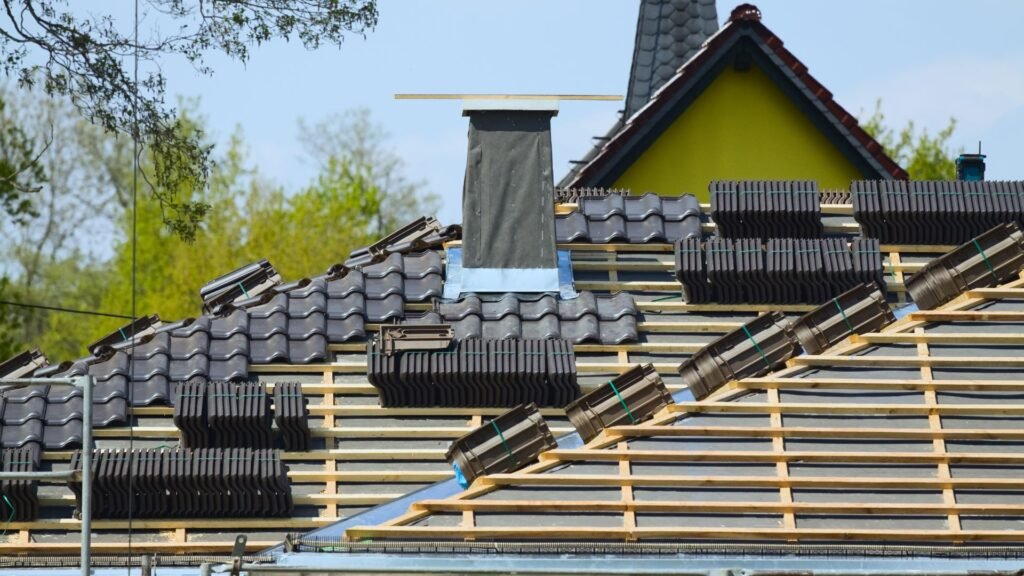
Labour Costs: What Roofers In NZ Typically Charge
When planning a roofing project in New Zealand, understanding labour costs is just as important as choosing the right materials. Labour usually makes up a significant portion of the total expense, so knowing what to expect can help you budget more accurately and avoid surprises during the job.
Hourly Vs. Per Square Meter Pricing
Roofing contractors in New Zealand may charge in two main ways: by the hour or per square meter. Smaller jobs or repairs often fall under hourly rates, while larger installations or full replacements are generally quoted per square meter.
Hourly pricing gives more flexibility, especially if the project involves variable conditions, like replacing damaged sections or navigating tricky rooflines. Per square meter pricing, on the other hand, provides a fixed cost for each square meter of roofing installed, making it easier to estimate total costs based on roof size.
Typical Hourly Rate In New Zealand
Roofers in NZ typically charge between $50 and $90 per hour, depending on their experience, the scope of work, and the region. Licensed and experienced roofers usually fall on the higher end of this range, while apprentices or junior tradespeople may charge less.
Keep in mind that labour charges may also include setup time, transportation, and site preparation. Always ask for a detailed breakdown when receiving a quote to understand what is covered in the hourly fee.
Regional Differences In Roofing Labour Costs
Labour costs can vary significantly across different parts of New Zealand. In Auckland, where demand is higher and living costs are steeper, you can expect to pay towards the upper end of the spectrum, often $80 to $90 per hour.
In Christchurch, rates are slightly more moderate, with many roofers charging around $60 to $75 per hour. Wellington typically falls somewhere in between, with rates ranging from $65 to $85 per hour depending on the project complexity and contractor availability.
These regional differences are important to consider if you’re comparing quotes from different providers or relocating your project between cities.
Time Required For An Average Roofing Job
The time it takes to complete a roofing job largely depends on the size and complexity of the roof. For a standard residential roof between 100 and 200 square meters, most professional crews will need between 2 to 5 working days to finish the job.
Factors that can extend the timeline include steep roof pitches, difficult access to the site, poor weather, or the need to remove old roofing materials. If the job includes extra services like insulation, underlay, or gutter replacements, those can also add to the total time required.
Always confirm the expected timeframe with your roofing contractor during the quoting process, and ask whether the quote includes all phases of the work, from prep to cleanup.
By understanding how labour costs work and what affects pricing, you can make more informed decisions and avoid going over budget on your roofing project.
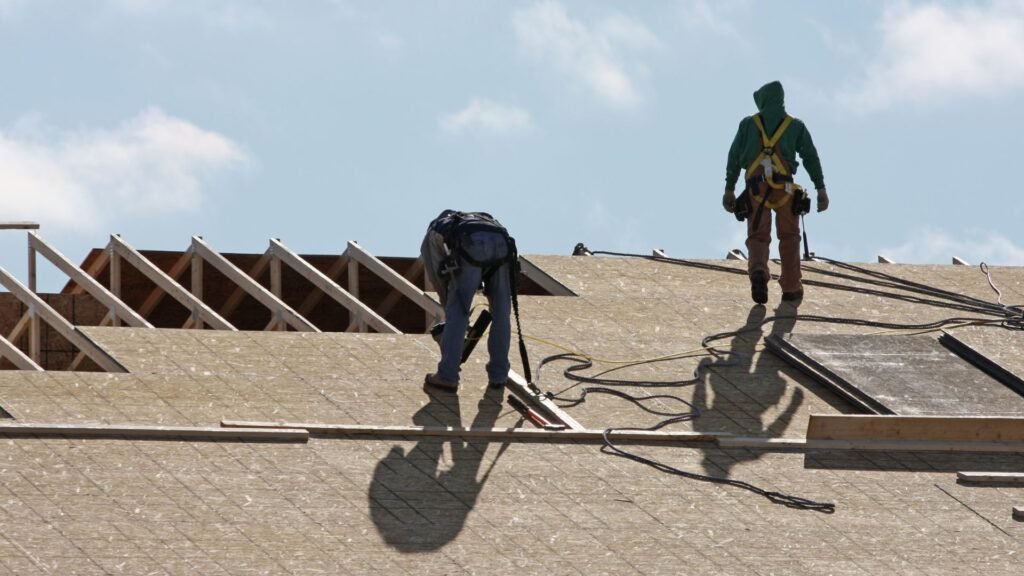
Additional Costs To Consider
When budgeting for a new roof in New Zealand, many homeowners focus only on the cost of materials and labour per square meter. But several hidden or extra costs can quickly add up. These are often necessary to complete the project safely and meet legal or performance standards. Knowing about them in advance helps avoid budget shocks and allows you to make informed decisions.
- Scaffolding ($1,000–$3,000):
Scaffolding is one of the most common extra expenses in roofing projects. It’s a legal requirement in many cases and ensures the safety of workers during installation or repairs. The cost depends on the size and height of your home, access points, and the time it’s needed on-site. A standard single-story home may cost around $1,000, while multi-story or complex jobs can push that cost closer to $3,000. - Council Consent (If Needed):
You might need council approval before starting your roofing project, especially if you’re changing materials, roof design, or structure. While not always required, securing consent ensures your project complies with local building codes. Fees vary depending on the council and the scope of work, so check in advance to avoid delays or fines. - Disposal Of Old Roofing ($20–$50/m²):
If you’re replacing an existing roof, you’ll need to factor in the cost of removing and disposing of the old materials. This includes labor to remove the roof, skip bin hire, and landfill charges. On average, this can cost between $20 and $50 per square meter, depending on the type and condition of the old roofing. - Guttering And Downpipes:
Guttering and downpipes may also need replacement during roofing work. Old or damaged systems can compromise your new roof’s performance. While not always part of a roofer’s core service, many include this as an add-on. Expect to pay more if your home has custom-sized or hard-to-reach gutters. - Insulation And Roof Underlay:
Good insulation and underlay help regulate indoor temperatures and prevent moisture buildup. While some roofing materials require specific types of underlay, others may need thermal blankets or extra insulation layers to meet New Zealand’s energy efficiency standards. These materials add to the total cost but improve long-term energy savings and comfort. - Site-Specific Issues:
Certain property conditions can increase your roofing costs. For example, homes with steep roof pitches require more time and safety equipment, raising labour costs. Remote or difficult-to-access locations may also involve travel fees or special gear. These details may not be obvious upfront, so it’s important to raise them when getting quotes.
Including these extra costs in your planning ensures your budget reflects the true scope of the project. It also prepares you for conversations with roofing contractors and helps you compare quotes fairly.

Roofing Cost Examples (Realistic Scenarios)
Understanding real-world roofing costs helps you set a realistic budget before starting your project. Below are two detailed case studies based on actual pricing trends in New Zealand. These examples highlight how different materials, home sizes, and locations can impact the final cost. Whether you’re building new or replacing an old roof, these breakdowns offer a clearer picture of what to expect.
Case Study 1: 120m² Home With Longrun Metal Roof In Auckland
A family in Auckland is building a single-story, 120-square-meter home and chooses longrun metal roofing. It’s a popular option for its durability, weather resistance, and affordability. Here’s a cost estimate:
Estimated Cost Breakdown:
- Roofing material (longrun metal at $140/m²): $16,800
- Labour ($60/hour, 4 days, 2 workers): $3,840
- Scaffolding and safety setup: $2,500
- Roof underlay and flashing: $1,200
- Delivery and transport: $500
- Total estimated cost: $24,840
Why this cost is realistic:
Auckland has higher labour costs and stricter site safety requirements, which slightly increase the total. Longrun metal is light and easy to install, which keeps the labour hours down.
Case Study 2: 150m² Villa Re-roof In Christchurch Using Concrete Tiles
A homeowner in Christchurch wants to re-roof a 150-square-meter character villa with concrete tiles. The roof has a medium pitch, and the existing tile roof must be removed before installation.
Estimated Cost Breakdown:
- Roofing material (concrete tiles at $140/m²): $21,000
- Labour ($55/hour, 5 days, 3 workers): $6,600
- Old roof removal and disposal: $2,500
- Scaffolding and safety setup: $3,000
- Roof underlay, ridge caps, and accessories: $1,800
- Delivery and transport: $600
- Total estimated cost: $35,500
Why this cost is realistic:
Concrete tiles are heavier and more labour-intensive to install. Re-roofing also adds extra steps like removing and disposing of the old material. Christchurch’s labour costs are slightly lower than Auckland’s, but the extra complexity pushes the price higher.
Key Takeaways From These Scenarios
- Material type has the biggest influence on cost.
- Labour costs vary between cities and project types.
- Re-roofing usually costs more than new roofing.
- Additional elements like safety setup, transport, and accessories can add thousands.
By looking at these examples, you can better understand the full scope of roofing costs in New Zealand. Always request a detailed quote and ask your contractor to explain every line item. This helps you avoid hidden charges and budget with confidence.
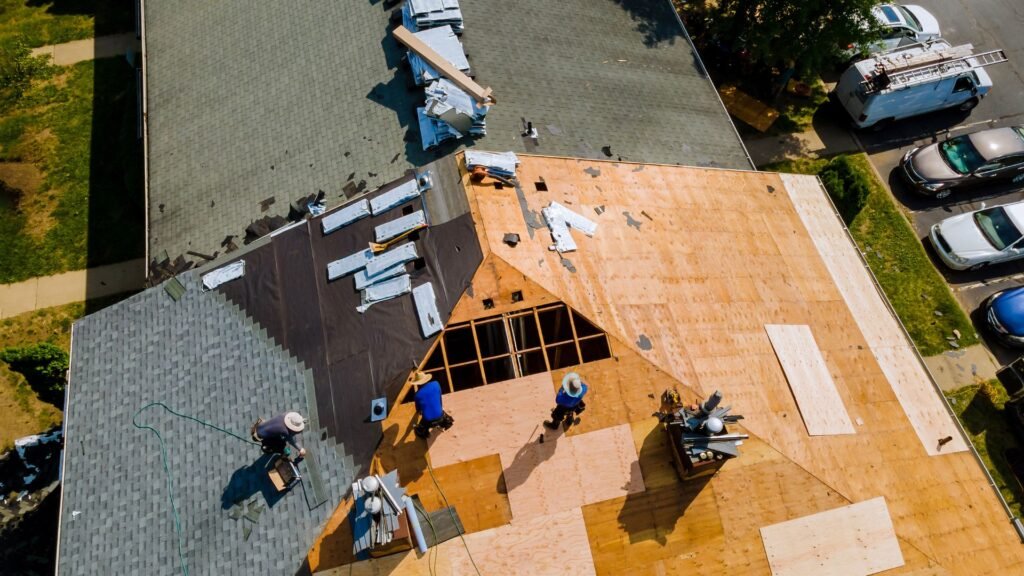
How To Save Money Without Cutting Corners
Roofing your home in New Zealand is a big investment, but that doesn’t mean you have to overspend. With smart planning and the right approach, you can cut costs without compromising quality or safety. Here’s how to do it the right way.
Compare Multiple Quotes (At Least 3)
Don’t settle for the first quote you receive. Get at least three detailed quotes from different roofing contractors. This lets you compare pricing, materials, and services offered. Look beyond just the total price, check what’s included, such as removal of the old roof, scaffolding, or warranties. Some roofers may charge more upfront but include extras that others list as add-ons. Asking for a breakdown helps you avoid surprise costs later.
Choose Materials With Long-Term Durability
Cheaper materials might save money now, but they often cost more in the long run due to repairs, replacements, and ongoing maintenance. Metal roofing, for example, may cost more upfront than asphalt shingles, but it lasts decades longer and withstands harsh weather. Look for options with proven lifespans, low maintenance needs, and good local availability. Always factor in warranty coverage, longer warranties often indicate better quality.
Consider Roof Design Tweaks (Simpler Pitch)
Complex roof shapes with steep angles or multiple levels can increase both labour time and material waste. If you’re still in the design phase or planning a renovation, simplify the roof design where possible. A straightforward pitch is easier and faster to install, which translates to lower labour costs. It can also improve drainage and reduce potential leak points.
Schedule During Off-Peak Times
Most roofing contractors are busiest in late spring and summer when the weather is stable. By planning your project for the shoulder seasons, like early autumn or late winter, you might score lower rates. Roofers often have more availability during these periods and may be more willing to negotiate. Just make sure the weather forecast is reliable enough for safe and efficient installation.
Ask About Supplier Discounts Or Bulk Deals
Roofing contractors often work with suppliers and may get access to discounted materials. Ask if they can pass those savings on to you. Some may also offer bulk pricing if you’re doing a large project or pairing the roof with other upgrades. It’s also worth checking if there are promotions or seasonal deals running on popular roofing materials. You don’t get what you don’t ask for, so bring it up during your quote discussions.
By using these practical tips, you can keep your roofing project on budget without compromising the integrity of your home. It’s not about going cheap, it’s about spending smarter.
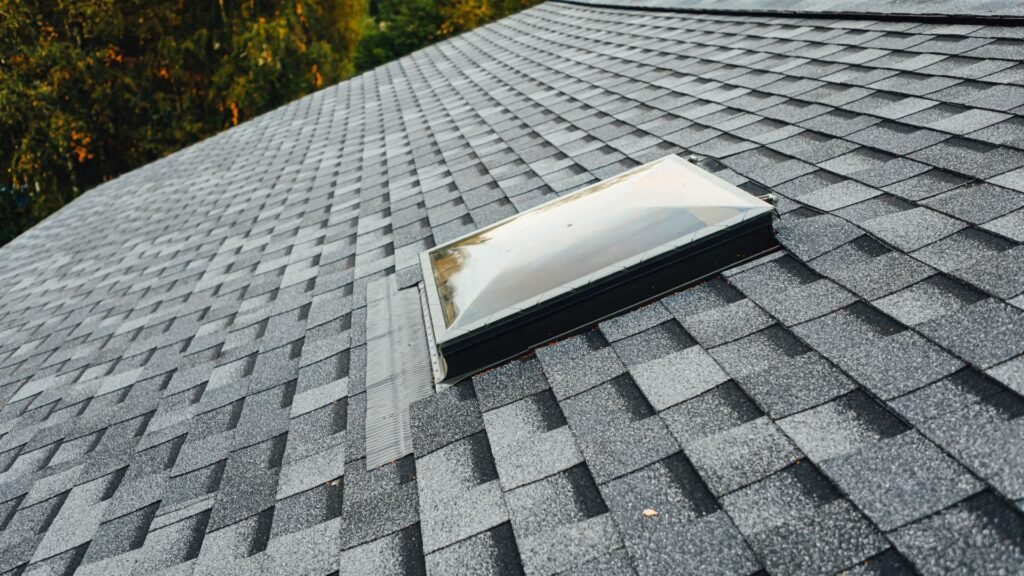
Questions To Ask A Roofing Contractor Before Hiring
Hiring the right roofing contractor in New Zealand can make or break your roofing project. A good roofer will not only deliver quality workmanship but also keep your home safe, compliant, and on budget. Before you sign a contract or agree to a quote, take the time to ask the right questions. Here’s a breakdown of what you should ask, and why it matters.
- Are You Licensed And Insured?
Always start here. A licensed contractor meets New Zealand’s standards for roofing work. They understand building codes and safety regulations. Insurance, especially public liability insurance, protects you from financial risk if something goes wrong on-site. If the contractor isn’t licensed or insured, that’s a red flag. You could end up responsible for accidents, injuries, or poor workmanship. - Do You Offer A Warranty?
A trustworthy roofer should back their work with a written warranty. This typically includes two parts: a workmanship warranty and a manufacturer’s warranty for the materials used. Ask how long the warranty lasts, what it covers, and how claims are handled. A roofing job is a big investment, make sure it comes with protection. - What’s Included In Your Quote?
Not all quotes are created equal. Ask for a detailed breakdown that includes materials, labour, scaffolding, removal of old roofing, and any potential extras. You want to know exactly what you’re paying for and avoid surprise costs later. Clarify whether GST is included and check if site cleanup is part of the deal. - How Do You Handle Weather Delays?
Weather in New Zealand can be unpredictable, especially in coastal regions. Rain or strong winds can pause roofing work. Ask the contractor how they deal with delays, how they protect your home if the roof is exposed, and whether weather interruptions will increase the cost or timeline. A professional roofer should have a clear plan for managing this. - Can You Provide Recent References?
Ask for contact details from recent clients in your area. Don’t just read online reviews, speak to real people who’ve worked with the roofer. Ask them about their experience, the quality of work, and if the job was completed on time and within budget. Contractors with nothing to hide will gladly provide references.
Asking these questions helps you find a reliable, experienced roofing contractor who can deliver high-quality results and peace of mind. Take your time, do the research, and never rush into signing a contract without getting these answers first.
Ready to get a roofing quote that fits your budget? Visit us to connect with trusted NZ roofing professionals and get started today.
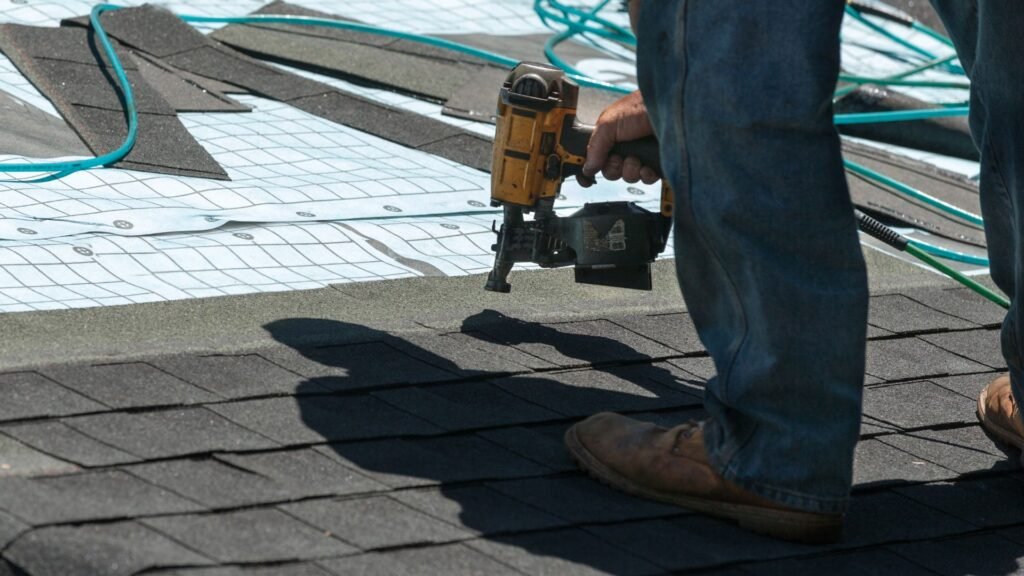
FAQs: About Roofing Cost Per Square Meter In NZ
What is the average roofing cost per square meter in New Zealand?
The average roofing cost in NZ ranges from $90 to $350 per square meter. The final price depends on the material used, the complexity of the roof design, and labour rates in your area.
Which roofing material is the most affordable in NZ?
Long-run metal roofing is typically the most cost-effective option, with prices starting around $90 per square meter. It’s durable, lightweight, and widely used across NZ.
Why do roofing costs vary so much?
Costs vary due to material type, roof size, pitch, access difficulty, location, and whether you’re re-roofing or building new. Labour rates also differ by region.
How much does it cost to replace a 100m² roof in NZ?
A standard 100m² roof can cost between $9,000 and $35,000, depending on the roofing material, labour, and additional costs like scaffolding and disposal.
Are there extra costs on top of material and labour?
Yes. Additional costs can include scaffolding, old roof removal, underlay, waterproofing, building consent, and gutter replacements.
How long does a roof replacement take?
Most roofing jobs take 2 to 5 days, depending on the roof’s size and weather conditions. Complex jobs may take longer.
Do I need council consent to replace my roof in NZ?
In some cases, yes. If you’re changing the roofing material or structural components, you may need building consent. Always check with your local council.
How can I lower my roofing costs without sacrificing quality?
Compare at least three quotes, choose durable materials, schedule the work during off-peak seasons, and simplify roof design where possible.
Does roof color affect the cost?
Color has minimal effect on price unless you’re choosing a specialty finish or brand. However, color can affect energy efficiency, especially in warmer areas.
Should I get a professional roofing quote before planning my budget?
Yes. A detailed quote gives you a clearer idea of material, labour, and extra costs based on your specific home and location.
Conclusion
When it comes to roofing cost per square meter in NZ, it’s important to strike the right balance between quality and price. Choosing the cheapest option may seem like a smart move at first, but it can lead to higher maintenance costs and shorter lifespan over time. Always look beyond the initial quote—consider the durability of the materials, the experience of the roofing contractor, and any long-term benefits like better insulation or fewer repairs. Careful planning and budgeting can save you from financial stress later. Start by outlining your must-haves, comparing at least three detailed quotes, and asking the right questions before signing any contract. To make things easier, use a checklist to track important factors like material type, labour rates, and extra charges. You can also download a quote comparison template to organize your options clearly and make a confident decision that fits your home and budget.
